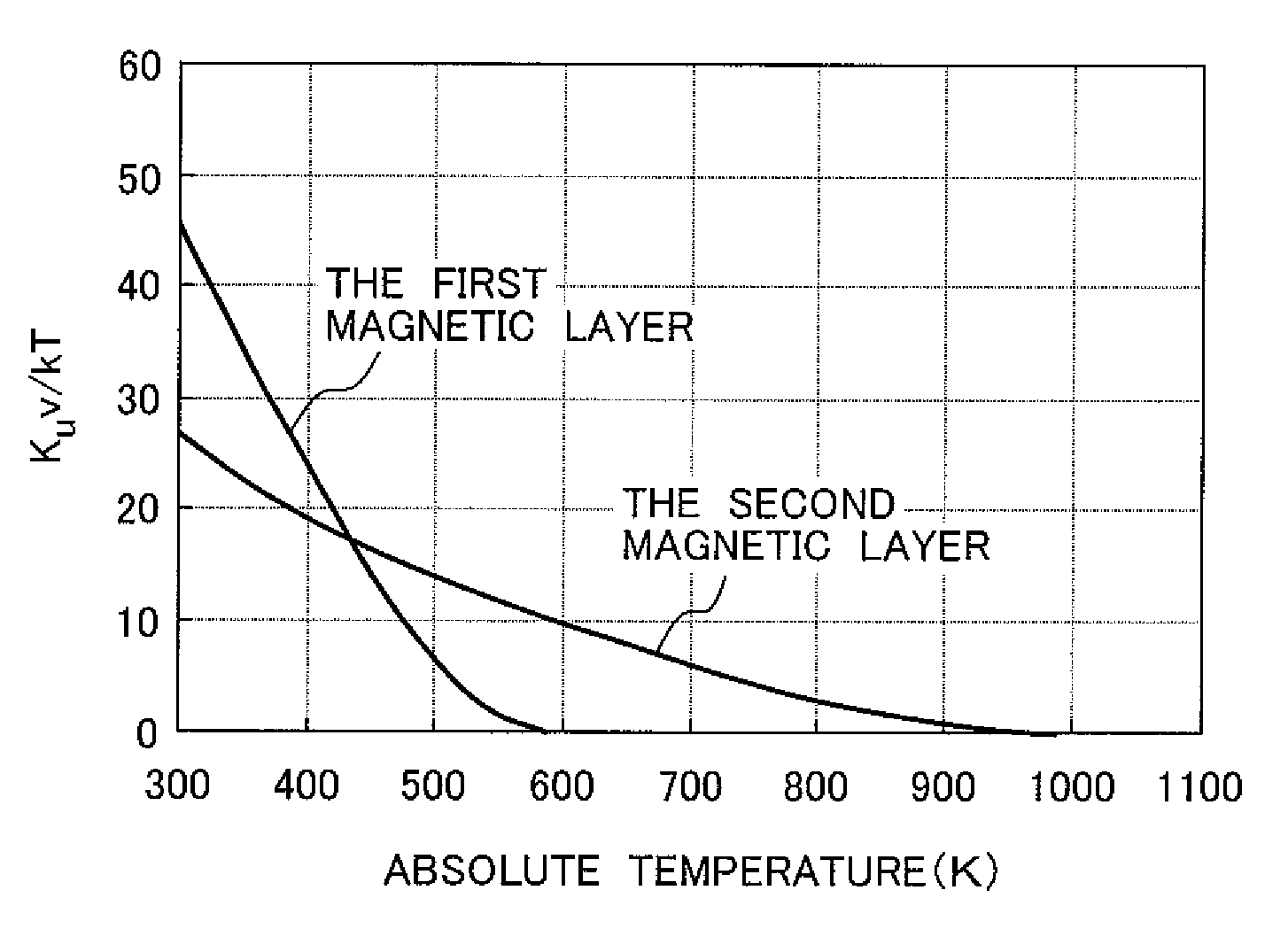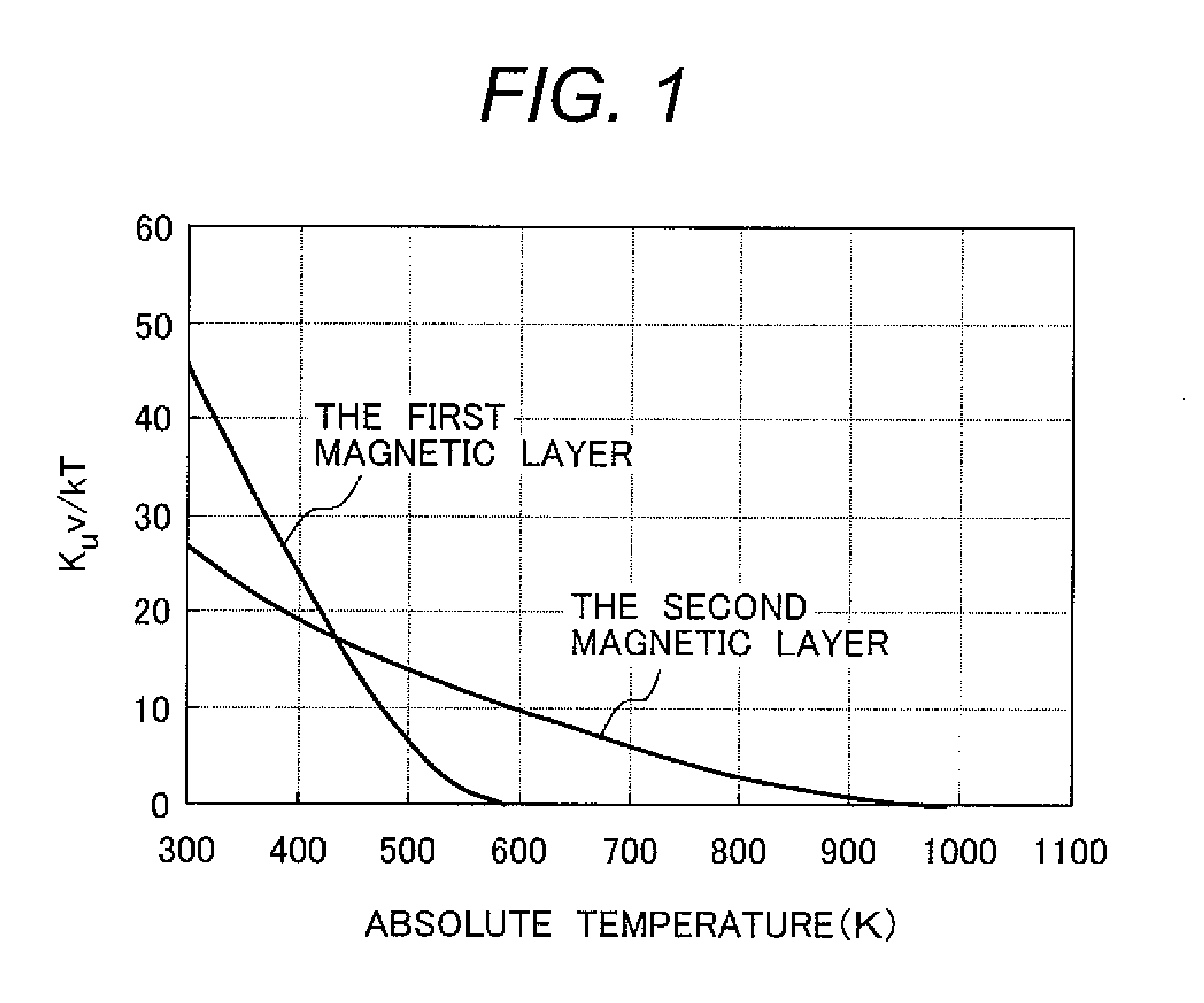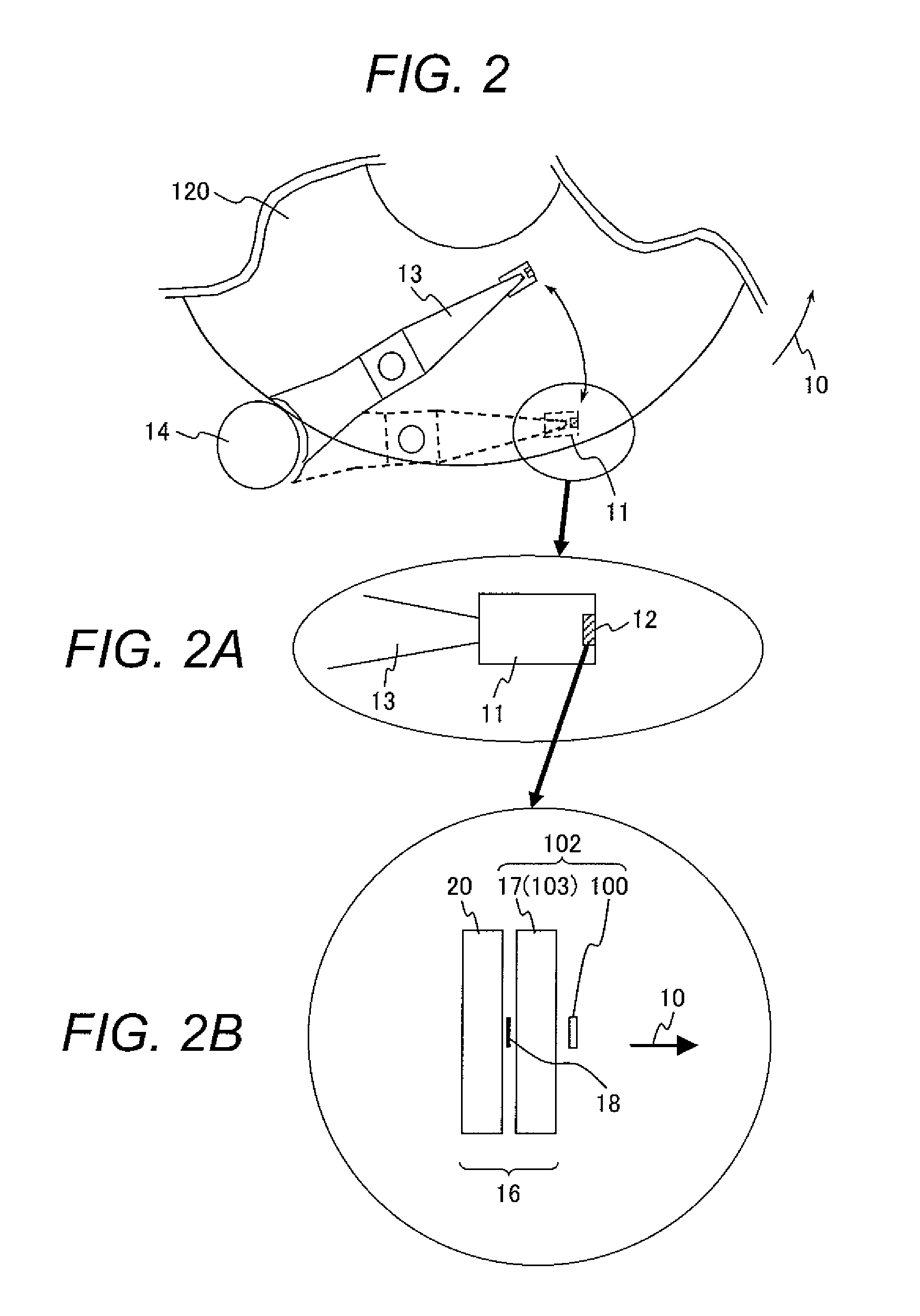Thermally assisted recording media and system
a technology of magnetic recording media and thermal assisted technology, applied in the field of thermal assisted magnetic recording media, can solve the problems of typical material limitations of techniques, and achieve the effect of reducing the number of magnetic recording media
- Summary
- Abstract
- Description
- Claims
- Application Information
AI Technical Summary
Benefits of technology
Problems solved by technology
Method used
Image
Examples
first embodiment
[0043]FIGS. 2, 2A, and 2B are schematic drawings illustrating a structure of a magnetic disc system (magnetic recording system) according to an embodiment of the present invention. One or more magnetic discs 120 are generally loaded in a drive unit of the magnetic recording system. The magnetic recording medium (magnetic disc) 120 is rotatively driven in the direction of an arrow 10 in FIG. 2. With reference to the enlarged view FIG. 2A, a magnetic head 12 is arranged at the rear end of a magnetic head slider 11 which is fixed at the distal end of a carriage 13. The magnetic head 12, when driven by the action of a voice coil motor 14, accesses a desired track and performs either the writing or reading of information to and from the magnetic recording medium. FIG. 2B is a schematic enlarged view of the magnetic head 12, illustrating the configuration of a write head 102 for writing and a read head 16 for reading, when viewed from an opposite side to the magnetic recording medium. The...
second embodiment
[0067]FIG. 10 is a cross-sectional view schematically illustrating the layer configuration of magnetic recording medium 130 in a second embodiment of the present invention.
[0068]A first magnetic recording layer 131 is formed from a mixture of a ferromagnetic alloy material with a non-magnetic material such as oxide. Possible exemplary ferromagnetic alloy materials include CoPt (cobalt-platinum) alloys, FePt (iron-platinum) alloys, and SmCo (samarium-cobalt) alloys; as well as [Co / Pt]n multilayer films and [Co / Pd]n multilayer films (superlattice layers). The first magnetic recording layer 131 is formed, for example, by alternately depositing layers of cobalt each 0.1 nm to 1 nm thick and layers of platinum or palladium each 1 nm to 2 nm thick to give a multilayer film having a total thickness of 20 nm or less. A second magnetic recording layer 132 is made from a ferromagnetic alloy material showing a large perpendicular magnetic anisotropy at room temperature as in the first embodime...
PUM
| Property | Measurement | Unit |
|---|---|---|
| Curie temperature | aaaaa | aaaaa |
| thickness | aaaaa | aaaaa |
| thickness | aaaaa | aaaaa |
Abstract
Description
Claims
Application Information
 Login to View More
Login to View More - R&D
- Intellectual Property
- Life Sciences
- Materials
- Tech Scout
- Unparalleled Data Quality
- Higher Quality Content
- 60% Fewer Hallucinations
Browse by: Latest US Patents, China's latest patents, Technical Efficacy Thesaurus, Application Domain, Technology Topic, Popular Technical Reports.
© 2025 PatSnap. All rights reserved.Legal|Privacy policy|Modern Slavery Act Transparency Statement|Sitemap|About US| Contact US: help@patsnap.com



